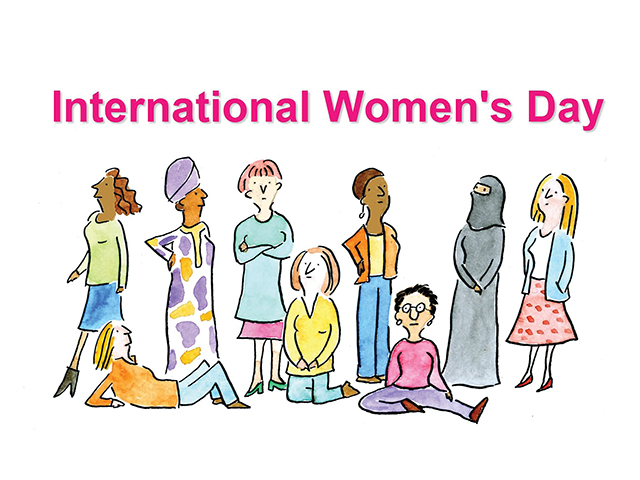
[dropcap]In[/dropcap] Dublin, the message for International Women’s Day hung from the tail of an aeroplane circling above the Gardens of Remembrance, where the annual pro-choice march was gathering. “Support women. Repeal the 8th.” It was an unusual treat for the demonstrators, one that remarked the fact that this march was not like the others that came before it – for the first time, there’s a vote in sight.
“We do not have millions and millions of euros, but we do have you, and that’s all we will need to win this referendum,” said Sinéad Kennedy, secretary of the Coalition to Repeal the 8th. Speaking to the crowds before the start of the march, she urged everyone to campaign even more and to make these final months count.
“This Amendment came at the end of our second wave of feminism,” added Catriona Crowe, historian, Head of Special Projects at the National Archives of Ireland and proud feminist. “Its consequences are a testament to this country’s extraordinary talent of creating an English solution to an Irish problem,” she continued, referring to the many women that travel to the United Kingdom each year to have a legal abortion procedure there.
Abortion rights are one of the major issues that feminist movements campaign for today, and certainly the most important in Ireland. Everywhere around the world, though, International Women’s Day was a chance to highlight other essential battles that still need to be fought. While some great milestones were achieved this year, like women in Saudi Arabia being finally allowed to drive and the massive impact of the #MeToo movement, true equality is not yet a reality.
In France, the Tour Eiffel lit up with a neon sign proclaiming that: “Now we act”. At 3.40pm women took to the streets to protest pay inequality, not just in Paris but in other major cities as well. The time was not random – if an average work day starts at 9am and finishes at 5pm, and if women earn 9 per cent less than men at the same job level according to The Economist, then women work for free the last hour and a half of the day. And on this International Women’s Day they used that hour and a half to protest and make their voices heard.
Gender pay gap was the key point in the marches that took place in Southern Europe as well. Spain and Italy both saw manifestations aimed to denounce inequality in the workplace, and also the massive issue of gender-based violence, which is still widespread in both countries.
University students and feminist collectives organised general strikes in both Madrid and Barcelona, following the motto of “Si las mujeres nos paramos, el mundo se para,” meaning if women stop, the world stops.
In Italy, the organisation Non una di meno (not one less), took charge of the marches that stopped the country’s biggest cities, Rome and Milan. In Rome, the focus was on sexual harassment – Rose McGowan and Asia Argento, two of Harvey Weinstein’s accusers, spoke to the crowds and marched alongside the thousands of women that travelled to the capital from everywhere around the country.
“It’s time for a new movement, #WeToo. We have to unite our voices in a single cry that will be impossible to ignore,” said Argento in a video posted before the start of the march on Non una di meno’s social media.
On the other hand, Milan’s marches concentrated on gender pay gap – it only makes sense, since Milan is Italy’s economic capital. The route of the protest was long, and touched several important places around the city, like the headquarters of the National Institute of Social Prevention which deals with handling the salaries of all state employees.
“The atmosphere was tense, almost as if we were all anticipating a fight,” said Margherita Brambilla, Social Media Manager for the Bossy Project, an Italian website dedicated to fighting inequality in all its shapes and forms. In fact, Non una di meno’s views could be considered a bit extremist, and their protests have always sparked debate. This time, though, the march went on as planned, reminding Milan and the rest of Italy that the problem of gender pay gap is one that needs to be addressed, and soon.
And what about America? The day passed in relative quietness if compared to the rest of the world, but it was definitely not forgotten. The conversation about #MeToo and the Time’s Up movement continues to go on online, and it’s not likely to stop anytime soon.
In the end, this International Women’s Day marked a shift in the air. The atmosphere is different, and change really is on its way, from the referendum in Ireland to the just finished awards season in Hollywood. But while there is a lot to celebrate for, there is also a lot to fight for still. As Catriona Crowe said at the end of her speech, “Feminism is our birth right, and the new wave of Irish feminism we have today will set things right. Praise be.”
Benedetta Geddo
Image credit: Pinterest



